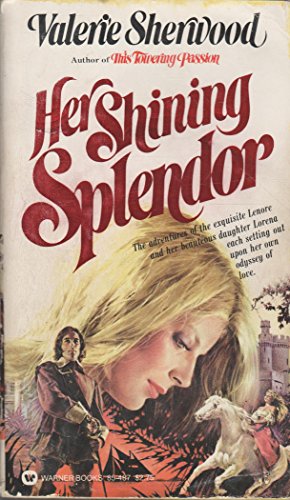Fiction has many purposes. Entertainment, education, enlightenment, and learning empathy are the big four I can think of right now. Good fiction should do all these things, sometimes without your notice. As you learn and grow, the lessons may get more subtle. Maybe the book is just brain candy,1 meant solely to entertain, and author didn’t mean to do anything Read more
reading
Premeditatio malorum (or, borrowing trouble)
A Musing:
A lot of things really bad and really good have happened around Chez Moriah the last couple of years. One of the good things is that XX tax deduction has learned how to drive and is getting out and about on her own. She works only a few minutes away, so we got used to her driving to work and back. But she has an internship 20 minutes away from home, all freeway, heavily trafficked, and sometimes very windy. Today was her first day driving it by herself, and I am nervous and scared. Read more
Book Review: Still Life with Strings
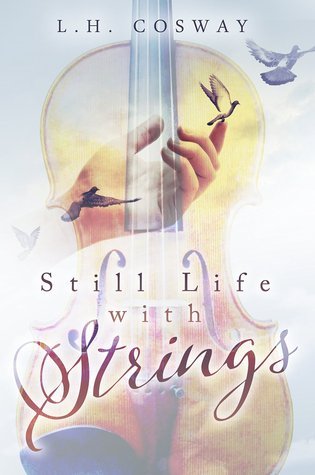 Review policy: I only post reviews on my blog for books I feel strongly about, good or bad.
Review policy: I only post reviews on my blog for books I feel strongly about, good or bad.
Title: STILL LIFE WITH STRINGS
Author: L.H. Cosway Read more
Musings on the “placeholder” heroine

I.
Except for those little moments relieved by the occasional huge moment, everyday life can be a drudgery. Whatever you are engaged in, be it work (no matter how glamorous or lucrative it is) or raising a family or fulfilling your calling at church or attaining some long-held goal (usually all of them at once), at some point, you’ll find yourself slogging through it and wondering where the magic is. Read more
On reading – links roundup
One day I saw somebody say, “Links roundups are lame.” Well, I like them, but I have minority opinions more often than not. You know what? Fuck that. I like ’em and this is my blog.
Is ‘devouring’ books a sign of superficiality in a reader? Amongst romance readers, of course, this question is fightin’ words.
Blogging again
You may have noticed.
I have some things on my mind I’ve wanted to discuss, but my attention span these days is pretty rotten. I’ve been tweeting (and then Facebooking) way too long to be able to put a small essay together in a coherent fashion. Read more
Creepy collective consciousness is creepy
It appears I’m not the only writer with her knickers in a twist over The Book That Shall Not Be Named, and not only that, but it appears the writerly collective conscious had gotten its knockers knickers in a twist somewhere between Sunday night and Monday morning. Usually when the twist in my knickers gets too tight, I simply avoid the source. In this case, I can’t. It’s everywhere, including my snail mail box after my 70-year-old aunt in Salt Lake took the time to cut an article on it from Deseret News and drop it in the mail to me. I can’t get away from it.
Between this and the incessant banging on the marketing drum, I’ve pretty much had all I can take of the business side of being a writer. (Note: Being a publisher is an entirely different thing.) Read more
The gatekeepers, part 2
Fiction takes you places
 A fan I tweet with regularly told me my books mess with her head and take her places she doesn’t want to go, but she goes there anyway.
A fan I tweet with regularly told me my books mess with her head and take her places she doesn’t want to go, but she goes there anyway.
I regularly hear the arguments that reading fiction can teach you empathy or give you a peek into someone else’s world. In other words, fiction is good for you. Like eating your vegetables is good for you. Read more
Reviewing too close to home
I wrote on this topic two months ago.
I still don’t know what to do, but I’m losing my patience because I discovered that writers of some of the stuff that’s really bad are giving writing advice. Oy. Stop it. You’re not qualified to give writing advice. Really.1
In light of this post and this comment, Read more
This Will Not Look Good on My Resume
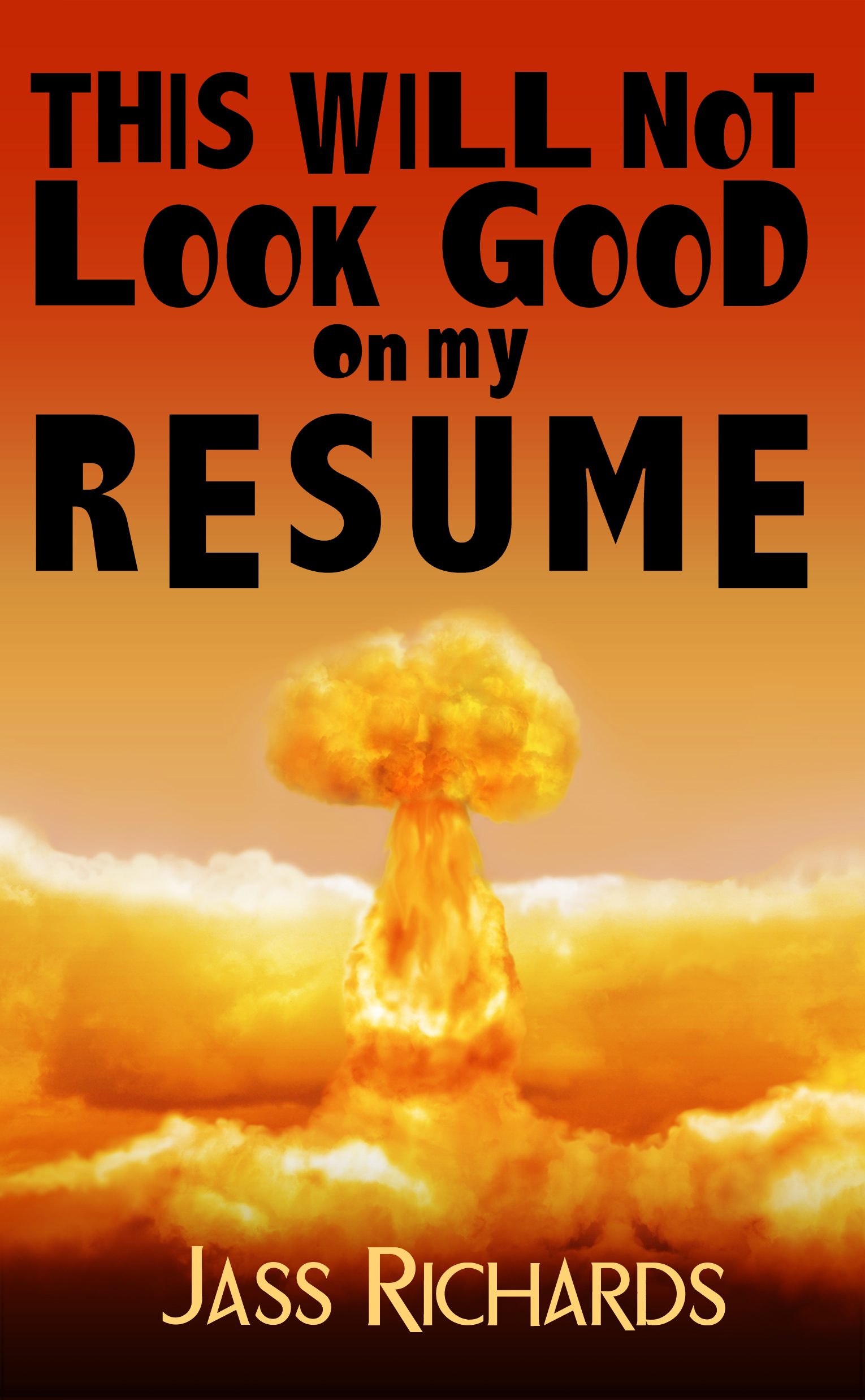 If you want some droll (adult) humor, go buy this. Seriously. It’s the funniest thing I’ve read this year, and I’m not sure, but it may be the funniest thing I’ve ever read, period.
If you want some droll (adult) humor, go buy this. Seriously. It’s the funniest thing I’ve read this year, and I’m not sure, but it may be the funniest thing I’ve ever read, period.
Amazon (print or Kindle)
Smashwords
“Everyone gets fired at least once in their life. And if not, well, they’re just not trying very hard. And we all think of brilliant and immature ‘shoulda saids’ and ‘shoulda dones’ for weeks after. (Okay, years.) In this collection of loosely related stories, Brett shows again and again that getting fired is really quite easy.”
I wanna fall in love.
From Mrs. Giggles’s post today, this caught my eye and helped me define something for myself:
I know, some folks view “escapism” as a dirty word, because we get defensive when people portray romance readers as silly women who want to escape their real lives by indulging in romantic fantasies. But there is some truth to the insulting stereotype no matter how we try to prettify things – we read romance novels for the vicarious entertainment. Nobody reads romance novels to become a better person – those who claim to do so are either people trying too hard to defend their hobby to critics or academics forced to read those things as part of a research and not as a hobby.
I read romance novels because I get to fall in love over and over and over and over again, that rush of feeling you get when you first meet somebody and there’s this strange and wonderful and glorious attraction and it’s emotional and sexual and spiritual and intellectual (if you’re doing it right) and you happily-ever-after yourself with this person and have a wedding-and-babies epilogue.
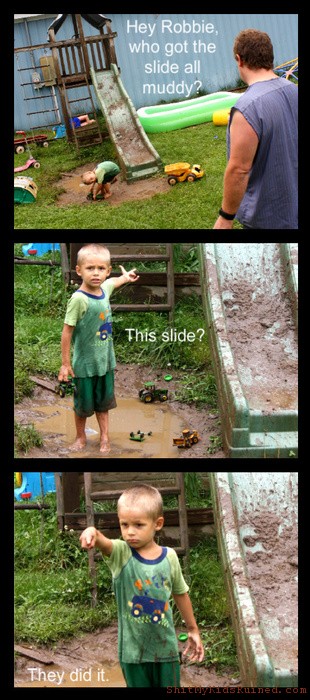 But then, real life settles in.
But then, real life settles in.
The babies really do come.
But so do the bills.
And the doctor visits for this and that and some other thing, reminding you you’re not twenty-five anymore.
The 7-year-old XX TD won’t stop telling you what she expects to get for Christmas, Valentine’s Day, her next birthday (almost a year away), and Arbor Day, preferably an XBox, a Wii, an iPhone …
The honey-do list gets added to faster than both of you together can keep up with it because you have a 4.5-year-old XY TD that breaks everything he touches—because he can—and you’re stepping on random screws that … you don’t know where they came from.
I love my family, but love is built on history and defeat and triumph and hardship; it’s made for the long haul. Falling in love is the glamour that tricks you into thinking you want to spend enough time with this person and these babies you make together to build that kind of love.
It wears off all too soon.
I’ve had a hell of a day today. Dude doesn’t get off work until late. I have no Calgon in the house. TV doesn’t satisfy. I’ve no interest in immersing myself in one of my craft/sewing/refinishing/decorating projects. I’ve been coding all day and have worn myself out.
But what will help, what I can do, is go fall in love for three or four hours once the kids go to bed and I’m waiting for Dude to get home from work.
That’ll hold me over until tomorrow morning, when I awake and pick up where I leave off tonight.
Because I love my family.
New Year’s resolutions
1. Make a concerted effort to contact the authors of books I enjoy and tell them that, and why.
I only know how wonderful it makes me feel when someone took the time to email me and tell me that they enjoyed one or both of my books and why. I can’t imagine any other author wouldn’t like it as much as I do.
2. Seek out and read more independently published work.
I think I have a skewed view of self-publishing, since I came to this via really good writers who decided to self-publish. Thus, I’ve never encountered this mythical slush pile of dreck I keep hearing about. Maybe I’ll find some, and maybe I’ll let you know if I do. Or not.
I’m not going to waste my time.
My August reading list experiment is no more.
I read Where Serpents Sleep by C.S. Harris and found it a bit hollow, particularly the end, where the heroine, Hero (I’d find that funnier if I didn’t know it was a Shakes reference), is kind of … forgotten. Hello! She lost her virginity. A teensy bit of half of a resolution would have been nice to ease me into the next book in the series. Actually, (please mark your calendars) I didn’t think the token sex scene was at all necessary (nor was it in character for either of them) and for me, that scene was a WTF? It made me wonder if the editor made her insert the de-virginization scene. Because without more emotional preparation before or reflection after by either of the characters, it made it superfluous. It was like a question that didn’t get completely asked, much less answered.
I’m 100 pages into Tribute by Nora Roberts. It’s going back to the library tomorrow with the rest of the list.
I have no interest in any of these books and I wouldn’t have picked them up in the first place, and my hypothesis will thus officially remain a hypothesis because I’m so not interested in proving it.
I have to finish beta-reading for a friend (this is not a chore, believe me and plug: her debut novel, On These Silken Sheets, is out on September 8—go preorder right now!), I am caught up in Seabird of Sanematsu and Fight Club so I need to finish those, and I want to glom some Victoria Dahl.
And that’s just what I have on my READING plate.
August reading list
Saturday night was the “Oscars” for romance, which is called RITA (no idea what that stands for, if anything). I saw something interesting in the results that made me form a hypothesis, and I want to test my hypothesis, so I’ll be reading the following books in August, which are the nominees for the “Novel with Strong Romantic Elements” category:
The House on Tradd Street by Karen White
The Paper Marriage by Susan Kay Law
The Shape of Mercy by Susan Meissner (must ILL this one)
The Winter Sea by Susanna Kearsley
Tribute by Nora Roberts
Where Serpents Sleep by C.S. Harris
Aside: I was going to buy all these in ebook, but I had put the first three in my basket at BooksOnBoard and they were all just too damned expensive. So helloooooo Mid-Continent Public Library. I’ll read paper for free before I’ll plunk down $13+ for an ebook. Bite me, publishers. This is how you encourage pirates to steal your authors’ work and take money away from them. Please note deliberate sentence construction.
Also, I am on schedule (actually ahead of) for my July reading list.
Update on the creepy book.
Okay, I’m about halfway through The Actor and the Housewife and things have started to become a little clearer.
The actor is clearly in love with the housewife; I don’t believe he is in denial about this, although he puts up a good act. Because he’s an actor. Heh. He’s a nice man.
The housewife is in complete and total denial. On purpose. She’s smart; she knows what’s up. She doesn’t want to deal with it because it’s gonna be nasty messy and painful. That is to say, she’s bored and she’s lonely and she’s completely unappreciated and she’s not getting much in the way of sexual healing from her husband. So handsome clever dude comes along and appreciates her as a woman, and of course it’s gonna go to her head. All the while she’s saying, “I have the perfect husband and I love him so much!” What she needs to do is wake up and tell her husband they need marriage counseling. I don’t excuse her actions. She’s lying to herself. IMO, that’s her biggest sin and she needs slapped.
The husband is … not a creep or a dick or an asshole. He’s lazy. Possibly stupid, but I’m leaning toward lazy. He’s lazy about his marriage. He’s lazy about taking care of his wife. He’s lazy about seeing her value to him as an unpaid (oh, but she gets room and board!) maid, chauffeur, nanny, and for the occasional (I think? He doesn’t seem interested.) sexual favor. Maybe. If she pushes hard enough.
He’s disturbed by her relationship with the actor (who calls every day; tells her he misses her), but he doesn’t notice when she’s trying to be sexy for him and his idea of a romantic evening is sitting on the family room floor after the kids go to bed watching the ten o’clock news and drinking chocolate milk—and that’s AFTER he’s already had his little pout about her friendship with the actor. He never gets really mad and yells at her. He does a couple of really passive-aggressive things to let her know he’s pouting. He can’t even be bothered to manifest his jealousy properly. (Is he that sure of her or does he think she’s not attractive enough? I can’t tell.) Yet he’s not disturbed enough to seduce her or romance her (or take what she offers, for that fact); either he doesn’t know how or he doesn’t see a need. Idiot lazy ass. You deserve to lose your wife to someone who’d sweep her off her feet given half a chance. Oh wait. You already have. Fight for her, you stupid fuck.
This is turning pretty dark with (dare I say it? I shall!) SPARKLES all over it to make it look like it’s all bright and shiny and cute and fun, and that the housewife is the only one with a little problem.
So far it’s shaping up not to be so much the story of her (without doubt) emotional affair with a (IMO) pretty awesome dude who’s head over heels in love with her.
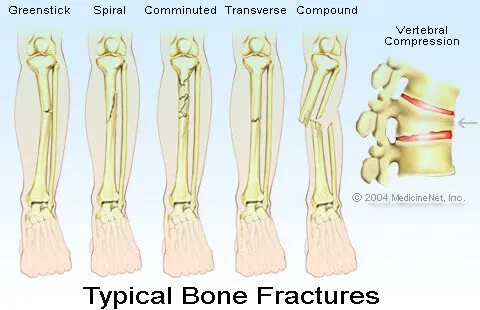 It’s shaping up to be the story of an already fractured marriage that needs the x-ray of aforementioned affair to show it for what it is. It’s not a spiral fracture or a comminuted fracture. It’s not even a clean break. It’s a stress fracture, the kind that gives you twinges of discomfort that you can ignore for a long time until it breaks and you’re like, “I didn’t do anything to it!” But catch it early enough, and all it’ll need to heal is a cast and time and a helluva lot of TLC.
It’s shaping up to be the story of an already fractured marriage that needs the x-ray of aforementioned affair to show it for what it is. It’s not a spiral fracture or a comminuted fracture. It’s not even a clean break. It’s a stress fracture, the kind that gives you twinges of discomfort that you can ignore for a long time until it breaks and you’re like, “I didn’t do anything to it!” But catch it early enough, and all it’ll need to heal is a cast and time and a helluva lot of TLC.
There’s a quiet desperation about it that’s starting to get heartbreaking (I have sprouted tears in a couple of spots). I suspect there are a lot of those kinds of marriages in the church. In a lot of churches. And outside them, too.
And oh, it’s so not chick lit. This is Women’s Fiction with a capital W and capital F. Dark and angsty without letting you KNOW it’s dark and angsty (and the bright perky cover is complicit in the deceit).
If this is where Shannon Hale meant to go without letting the reader figure out where she’s taking you, then I salute her. She’s effing brilliant.
But I haven’t finished it, so I may again change my opinion. I shoulda waited until I was finished, but this is too dense with subtext not to share as I go along. I hope it’s intentional. Dear Sister Hale, please don’t pull a Stephenie Meyer on me. Please. Pretty please.
The zeitgeist of a story
Romance novels are mocked all the time everywhere. That’s not news. What was surprising to me upon my reentry into reading and writing romance, which necessitated entering Romancelandia, the world of romance reader blogs, was that they’re also mocked by people who love romance novels.
Some books deserve it, but some that might seem to deserve it … don’t.
Those are books from the history of romance novels that are mocked for their fashions and specific song references and other tidbits of culture that date them and, quite often, the covers that were made for them at the time. In particular, very often the sweeping scope and larger-than-life characters and plots are mocked. The people doing the mocking, I find, are young and/or young to the romance genre.
I don’t know quite what they expect when they read a book from the 1970s, 1980s, or 1990s that would rightfully be fodder for mockery if written now, but the fact of the matter is, they’re not meant to be timeless in every respect. If one puts oneself into the study of romance novels, to be intellectually honest, one must also be able to sift the culture of the time and how these novels work within that.
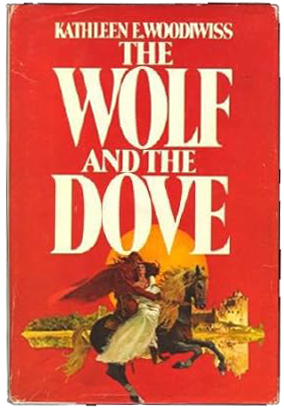
Let me put this in some context. In the early 1970s, a lady named Nancy Friday interviewed women on the subject of their sexual fantasies and published them in a couple of books: My Secret Garden (1973) and Forbidden Flowers (1975), just at the cusp of the “rape romance.” Without taking Friday’s scholarship into account, I find it interesting that many women’s fantasies at that time featured rape prominently. I also find it fascinating that these books were published nearly simultaneously with the early rape romances and thus, probably didn’t inform each other.
And then came the soap General Hospital in 1979, with Luke and Laura, which is, as far as I can tell, the most famous rape romance ever.
Mind, this definition of “rape” is not a legal one; it’s a highly stylized one in which it allows the female to retain her Good Girl status while still A) having sex and B) enjoying it because the hero is a different kind of rapist: One who is attractive, who is uncontrollably attracted to the heroine, and who gets her off after he’s made it possible for her to have an out, i.e., “I was raped.”
Why did she need an out? Because, at the time, a woman’s enjoyment of sex (especially outside of marriage) was still taboo.
(In The Proviso, one couple’s, uh, courtship [heh] is an homage to this era of genre romance.)
As an another aside, there is the shifting definition of “genre.” In the aforementioned 1970s and 1980s, many heroines typically had more than one lover throughout the course of her story, but ended happily with one. This would not happen in genre romance now unless it is a ménage à trois erotic romance.
Now, the heroine who has more than one lover during the course of a genre romance novel would not be meeting the expectations of the average genre romance reader, which is to say, sexual involvement between one man and one woman throughout the course of the book, with a happily ever after ending. (This does not speak to the fact that the male occasionally has other lovers, but in context, and with the understanding that that’s okay because a man has his needs. We haven’t come all that far, baby.)
In fact, in a Twitter conversation with (among others), @mcvane, @victoriajanssen, @redrobinreader, we decided that those romances would now be classified as women’s fiction. Naturally, our word is law.
I’m not sure why there’s this unwillingness to go along with the zeitgeist of the time in which the book was written, but instead to apply today’s standards of fashion or technology or pop culture as markers of timelessness. We don’t expect that of our historical novels, so why do we expect it of “contemporary” romances that cease to be “contemporary” the moment the galleys are finalized?
Me? I like reading the zeitgeist. I don’t miss it if it’s not there, but if it is, it’s a lagniappe for me. It gives me a feel for the time period and takes me back. Perhaps the difference is whether one is too young to be taken back or not. I don’t know.
However, in reading some earlier novels, I find this especially important because a lot of the plot devices realistically used then could not be used now because of advances in technology. If one can accept that it was 1979, and the heroine didn’t receive a letter that the hero had sent and he had no other way of contacting her or finding her to clear up a misunderstanding, one should also accept the blue eyeshadow and feathered hair.
I date my novels for a reason, which is to commit the zeitgeist of the moment in the mind of the reader, leaving no question as to its pop cultural references. In 10 years, no one can say, “That feels so dated.” They’ll have to say, “The author is very explicit about these events occurring between 2004 and 2009. If it feels dated, well, that’s because it is. It says so right in the chapter headings. Go with it.”
The expectation that one should be able to pick up a romance novel (or any other novel) from the 1970s, 1980s, 1990s, and either not be reminded that that was when it was written, or not be offended by some of the themes in the novel borne of the time it was written, seems to me that we wish to either forget that part of our history or cover up the history. More likely, however, is that we may live (and read) in the moment and may be either unwilling or unable to reference the history of the time in which the novel was written.
It’s a shame, really, because a lot of stories’ richness and layering gets lost without the proper historical context.
A cautionary tale for authors and agents
You know, I shove a tanto in my gut and bleed all over the interwebz about my issues with embedded font evangelism in the name of book designer job security, then I get over it and I think I’m done.
Well, Penguin Books has reminded me this morning that not only am I not done, I’m now pissed off as a reader and not as a writer/publisher/e-book mark-up-er, except … this is really not about Teh Pretteh. It’s about DRM. I’m fighting the wrong battle. The book designers can go figure out their own lives. I’m a reader first, dammit.
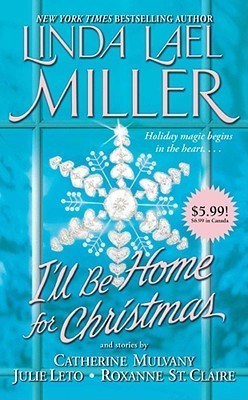
Way back in the day (six months ago), Penguin offered the novella “You Can Count on Me” by Roxanne St. Clair as a free PDF download you could snag from Ms. St. Clair’s site. It was part of a Christmas anthology called I’ll Be Home for Christmas and features characters from her long-running series called The Bullet Catchers. I believe there are currently three books in this series, with probably more to come.
Now, I don’t like romantic suspense and I don’t like anthologies and I don’t like Christmas romance novellas, but this looked like a good way to ease me into a romantic suspense series that already had me intrigued.
And it was free. No question.
Yet I forgot the cardinal rule of life: There ain’t no such thing as a free lunch.
Dear Penguin:
You suck. And not in the good, hot, naughty kind of way.
The novella is 97 PDF pages long, but it’s 5.25 MB. Why? BECAUSE IT’S A SCAN WITH A BIG FAT KANGAROO WATERMARK ON EACH PAGE.
To give you an idea of how big this is, my 736-page doorstopper’s PDF is 7 MB. 736 pages >97 pages.
I converted this novella before I realized it was a scan. Easy enough. PDF → RTF → IMP.
Except it wouldn’t load onto my eBookWise. WHY WHY WHY? Well, because it’s just too big. The IMP file is 68 MB.

To sum up: Not only am I NOT going to read this free PDF (because I don’t read books on my computer), I’m also going to dump it from my computer (which I never do because even the bad books still belong to me) because it’s a space hog and severely cramps my Vostro’s innards when it tries to open the damned file, and I’m going to remember Ms. St. Clair (poor dear, I know it’s not her fault) for this and only this.
You cost me a lot of time with your chastity-belted freebie, time I could’ve used to make money to buy the anthology the novella came from and buy more of Ms. St. Clair’s work if I liked the novella.
Perhaps authors and agents negotiating contracts with you would do well to remember that your DRM process never gave me a chance to get hooked off your free hit.
Love,
Mojo
Update @8:38 p.m. It was just pointed out to me that the PDF file didn’t actually have any DRM on it. It was just a wildly bloated scanned-and-watermarked PDF. The effect, however, is the same: Make it as difficult as possible for the consumer to read the book. Every time I open the PDF, whatever else is in those graphics (it’s a scan, remember), it nearly crashes my computer.
One could argue that this is where book design and fear of piracy converge to create a virtually (heh) unusable product.
Monkey see, monkey do
Theric put up his summer to-do list. I thought that was cool. I’ll put mine up, too. Except, well, I don’t have an entry to have a baby. We are SOOOOO done with that Tax Deduction thing.
Readin’:
Torn by God by Zoe Murdock
The Seabird of Sanematsu by Kei Swanson
Fight Club by Chuck Palahniuk
The Actor and the Housewife by Shannon Hale
The Ugly Princess by Elizabeth K. Burton
Writin’:
Work out my sticking points on Magdalene. Thing is, I know what it is; I just can’t visualize how it all goes down.
Edits on Stay when I get it back from above-mentioned editor.
’Rithmetic:
Create a couple of new products for My Other Business That Is Not Publishing.
There are other things I need to get done, but that’s all pretty boring stuff like, “put up a shelf” sort of stuff.
Smart Bitch Sarah Wendell…
… interviewed over at David Nygren’s place.
It’s an awesome interview and a good lesson in unintended consequences of doing something you love, and that love communicating itself to others to create its own brand.

 There’s a
There’s a 